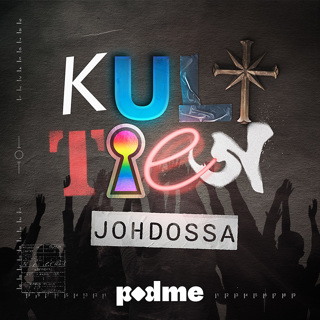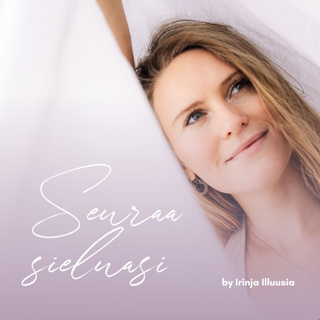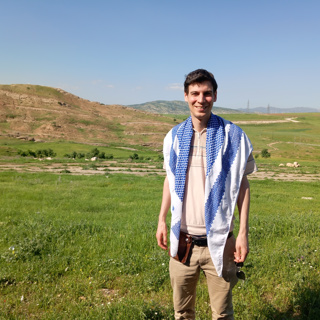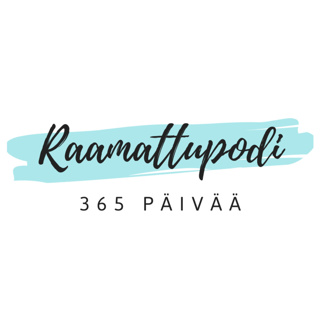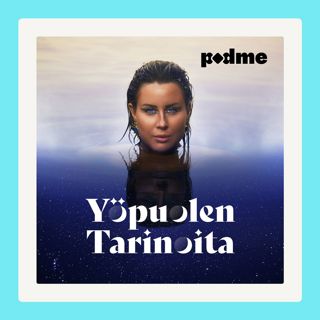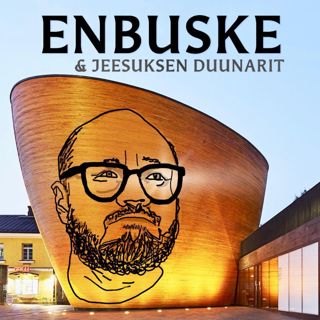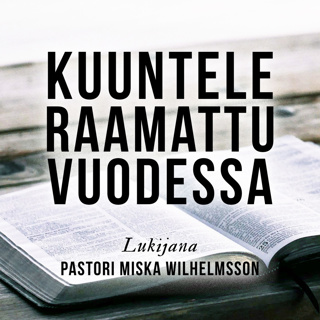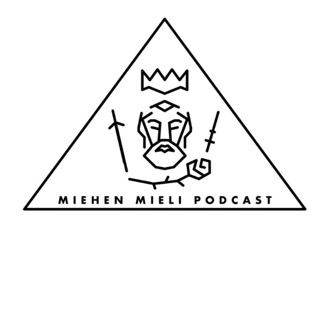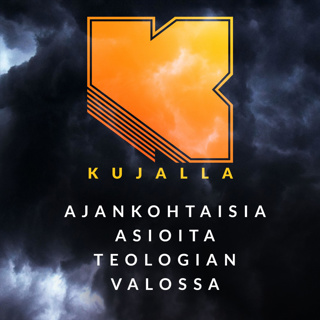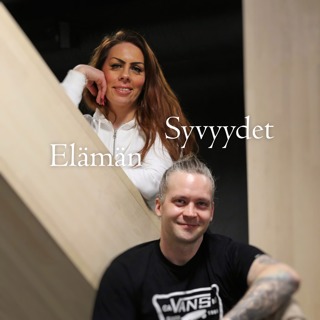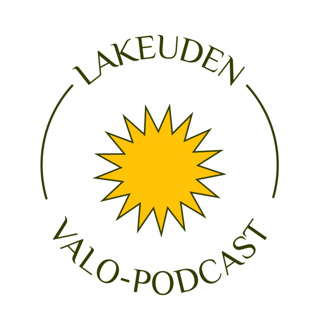![Menachem Penner and Gedalia Robinson: A Child's Orientation [Divergence 3/4]](https://cdn.podme.com/podcast-images/D79089FBEF78B78B9B1A2A8AFD27F6A1_small.jpg)
Menachem Penner and Gedalia Robinson: A Child's Orientation [Divergence 3/4]
In this episode of the 18Forty Podcast, we talk to Rabbi Menachem Penner—dean of RIETS at Yeshiva University—and his son Gedalia—a musician, cantor-in-training, and member of the LGBTQ community—about their experience in reconciling their family’s religious tradition with Gedalia’s sexual orientation. When Gedalia realized he was gay as a young teenager, his parents weren’t sure how best to deal with the information. They initially attempted conversion therapy, now known to be ineffective at best and harmful at worst. They have since come to a happier, closer place in their relationship, characterized by love and mutual respect - but the road to this happy ending was long and indirect. Among the topics covered, we discuss the following: When did Gedalia and his parents realize he was gay? How did they react to this information? What was their initial course of action, and how has that changed over the years? Do they have any regrets? And what would they advise others in similar situations? Tune in to hear Gedalia and Rabbi Penner discuss their journey towards acceptance and mutual understanding. References:Far From the Tree by Andrew SolomonWhen by Daniel PinkWhy We Sleep by Matthew WalkerJQYEshelKeshetFor more, visit https://18forty.org/topics/divergence. Rabbi Menachem Penner (father) is the dean of RIETS, the Rabbi Isaac Elchanan Theological Seminary at Yeshiva University, and previously served as the rabbi of the Young Israel of Holliswood in Queens. Rabbi Penner is an eloquent speaker and chazzan, well-known for his rousing lectures on prayer. Gedalia Robinson (son) is a singer-songwriter, musician, and cantor-in-training at the H.L. Miller Cantorial School at JTS. Gedalia is well known for his powerful original music, his work with the Y-Studs, and as a member of Hadar’s Rising Song Residency. Gedalia came out as gay while in Yeshiva University and is a strong advocate and supporter of LGBTQ+ people living in and out of the Orthodox Jewish community. Gedalia currently lives in Philadelphia with his husband, Caleb, and dog, Booker.Become a supporter of this podcast: https://www.spreaker.com/podcast/18forty-podcast--4344730/support.
22 Maalis 20211h 19min
![Daniel Grama & Aliza Grama: A Child in Recovery [Divergence 1/4]](https://cdn.podme.com/podcast-images/D79089FBEF78B78B9B1A2A8AFD27F6A1_small.jpg)
Daniel Grama & Aliza Grama: A Child in Recovery [Divergence 1/4]
In this episode of the 18Forty Podcast, we sit down with Rabbi Daniel Grama—rabbi of Westside Shul and Valley Torah High School—and his daughter Aliza—a former Bais Yaakov student and recovered addict—about navigating their religious and other differences. Daniel is a rabbi in Los Angeles, and has, to some extent, dedicated his life to teaching others about Orthodox Judaism. Aliza experienced a rebellious teenhood in which she left religious observance and succumbed to addiction. As Aliza’s deviation from her Orthodox upbringing became more pronounced, she and her family were forced to come to terms with their differences, and eventually learned to love, understand, and compromise with each other. Among the topics covered, we discuss the following: When did each side realize their lives were very different? How did they process this during the early years? How did Daniel and Aliza come to terms with the unfulfilled religious expectations of a parent? How have they been able to build a healthy relationship? And what would they have done differently? Tune in to hear Daniel and Aliza ruminate on the difficult years of their relationship and what has happened since. References:Mishpacha MagazineThe Body Keeps the ScoreScholarly Mentions:Donald WinnicottFor more, visit https://18forty.org/topics/divergence. Daniel Grama (father) is the rabbi of the Westside Shul in Los Angeles, and a rabbi in Valley Torah Yeshiva High School. Aliza Grama (daughter) lives in the Los Angeles area, and hosts a weekly parsha class with her father on her Instagram, where they model a shared appreciation for Torah that shines through their many differences.Become a supporter of this podcast: https://www.spreaker.com/podcast/18forty-podcast--4344730/support.
8 Maalis 20211h 28min
![Rabbanit Rachelle Fraenkel: How Can God be Found After Trauma? [God 3/3]](https://cdn.podme.com/podcast-images/D79089FBEF78B78B9B1A2A8AFD27F6A1_small.jpg)
Rabbanit Rachelle Fraenkel: How Can God be Found After Trauma? [God 3/3]
In this episode of the 18Forty Podcast, we sit down with Rabbanit Rachelle Fraenkel—speaker, educator, and yoetzet halacha— about the effects of tragedy on emunah. In 2014, Rabbanit Rachelle Fraenkel’s son Naftali was kidnapped and murdered in a tragic terror attack. The week before the world learned of his fate was sad but hopeful, leaving many feeling crushed by the outcome. Despite this impossible situation, Rachelle was lauded as displaying emunah, faith, in Hashem, remaining optimistic but devoid of expectation. -How did or didn’t Rachelle’s tragedy impact her emunah in God?-What expectations can people have of God when they pray?-What expectations can people not have of themselves when they pray?-What should our relationship with God be during difficult times?-And how should we console those who are themselves going through difficult times?Tune in to hear Rachelle talk about emunah in the face of tragedy, and how one can blend optimism and realism. References:Yosl Rakover Talks to God by Zvi KolitzThe Blessing of a Broken Heart by Sherri MandellScholarly Mentions:Emmanuel LevinasFor more, visit https://18forty.org/topics/god.Rabbanit Rachelle Fraenkel is a teacher of Torah at Nishmat and the director of Matan’s Hilchata Institute. After her son Naftali was kidnapped and killed along with Gilad Sha’er and Eyal Yifrah in 2014, Rachelle became an international speaker and teacher. Rachelle speaks from the sharpest edges of human experience and her words are marked by a deep wisdom. Listen to Rachelle to hear from a profoundly learned and experienced teacher of Torah and life.Become a supporter of this podcast: https://www.spreaker.com/podcast/18forty-podcast--4344730/support.
23 Helmi 20211h 22min
![Dr. Aaron Segal: Can God Be Proven? [God 2/3]](https://cdn.podme.com/podcast-images/D79089FBEF78B78B9B1A2A8AFD27F6A1_small.jpg)
Dr. Aaron Segal: Can God Be Proven? [God 2/3]
In this episode of the 18Forty Podcast, we sit down with Dr. Aaron Segal, philosophy professor and student of both Rav Aharon Lichtenstein and Alvin Plantinga, to discuss God from the perspective of analytic philosophy. Analytic philosophy is mathematical, breaking claims into small pieces to rigorously analyze the language and concepts. The cost of this approach is its unwieldiness and high standards, which Aaron believes has precluded it from providing a capital-P proof of God’s existence. But one can still reason about God, and though some would claim belief in God is irrational, Aaron thinks its rationality is justified. -What are the approaches one can take to belief in God?-What are the limits of analytic philosophy in talking about God?-What are the limits of a philosophy like Plantinga’s reformed epistemology?-Can one’s knowledge of God be purely experiential?Tune in to hear Aaron talk about both the power and limits of reasoning applied to God.References:Tractatus Logico-Philosophicus by Ludwig WittgensteinKuzari by Yehuda HaLeviMetaphysics by Peter van InwagenAdvice to Christian Philosophers by Alvin PlantingaThe Source of Faith is Faith Itself by Rav Aharon Lichtenstein"The Source of Faith..." Examined by Aaron SegalKurt Godel's ontological argument - https://plato.stanford.edu/entries/ontological-arguments/#GodOntArgScholarly Mentions:Rav Aharon Lichtenstein, Alvin Plantinga, Kurt Godel, Bertrand Russel, Ludwig Wittgenstein, Yehuda HaLevi, David Hilbert, Immanuel Kant, David Chalmers, Georg Cantor, John Locke, David Hume, David Johnson (YU) For more, visit https://18forty.org/topics/god. Dr. Aaron Segal is a lecturer in the Department of Philosophy at the Hebrew University of Jerusalem, and formerly taught philosophy in Yeshiva University. Aaron received his doctorate from the University of Notre Dame, where Alvin Plantinga was one of his thesis directors. He has co-authored and co-edited books on Jewish philosophy, such as Jewish Philosophy in an Analytic Age. Aaron is masterful in his knowledge and comfort in the profound questions of analytic philosophy, and also received Semicha from the Chief Rabbinate in Israel.Become a supporter of this podcast: https://www.spreaker.com/podcast/18forty-podcast--4344730/support.
16 Helmi 20211h 28min
![Rabbi David Aaron: How Should We Talk About God? [God 1/3]](https://cdn.podme.com/podcast-images/D79089FBEF78B78B9B1A2A8AFD27F6A1_small.jpg)
Rabbi David Aaron: How Should We Talk About God? [God 1/3]
In this episode of the 18Forty Podcast, we sit down with Rabbi David Aaron, author, thinker, and educator, to discuss what God is and isn’t. People often think of God as a powerful, heavenly figure giving commandments, but to Rabbi Aaron, God is more of an experience of awe or good that morally inspires. This experience is impacted by our past experiences, often most prominently by those involving our parents. Rabbi Aaron thinks that many atheists are truly believers and would connect to their faith through therapy, not philosophy. - What is and isn’t God?- What does it mean to believe in God, and what does it mean to be an atheist?- Why do people believe in God?- How does one find and experience God?Tune in to hear Rabbi David Aaron discuss his views on God and how the subject should be taught in our education.References:Tzidkas HaTzadik by Rav TzadokThe Secret Life of God by Rabbi David AaronGetting the Love You Want by Harville HendrixSeeing God by Rabbi David AaronAhavas TzedekFor more, visit https://18forty.org/topics/god.Rabbi David Aaron is an educator, thinker, and writer, who has put the dynamic God at the center of his life’s work. Uncompromisingly lucid, David puts the deepest and most pressing questions of Jewish theology in human terms. He received his rabbinic ordination from Yeshivat ITRI and is the Dean & Founder of Isralight (an international organization and center for Jewish learning in Jerusalem’s Old City) and Yeshivat Orayta (which offers a 1 to 2 year program for high school graduates). David is the author of eight books, including Endless Light, Seeing G-d, Love is My Religion, The Secret Life of G-d, Inviting G-d In, Living a Joyous Life and The God Powered Life. Listen to David to hear how Jewish theology can be a personal endeavor.Become a supporter of this podcast: https://www.spreaker.com/podcast/18forty-podcast--4344730/support.
9 Helmi 20211h 16min
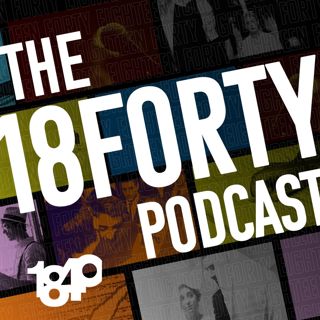
OTD Highlights
In this episode of the 18Forty Podcast, we sit down for a special session with our host, David Bashevkin, to discuss one of the podcast’s first topics: going off the derech. There are many preconceptions that come with leaving one’s religious life. People often claim to know the precise psychological reasons that caused someone to leave and what kind of life they’re currently living. There are always reasons, but these reasons can be varied and unexpected, and can lead people to very different places. Some don’t even think of themselves as having left, as they have found a different derech that works for them. -Why do people leave religion?-Where do people go instead?-What struggles do people experience in leaving their old communities?-How does the desire for community manifest in trying to build a new life?Tune in to hear David reflect on his conversations with past podcast guests about this phenomenon of leaving one’s religious community, or going OTD.References:Shulem Deen interview - http://18forty.org/otd/#deenPhilo Judaeus interview - http://18forty.org/otd/#judaeusKelsey Osgood interview - http://18forty.org/otd/#osgoodJudaism and the Twice-Born by Kelsey OsgoodAll Who Go Do Not Return by Shulem Deen For more, visit https://18forty.org/otd.Become a supporter of this podcast: https://www.spreaker.com/podcast/18forty-podcast--4344730/support.
26 Tammi 202156min

Talmud Highlights
In this episode of the 18Forty Podcast, we sit down for a special podcast with our host, David Bashevkin, to review the first topic that 18Forty covered: Talmud. Though Judaism has many facets to its practice, Talmud study has long been one of its hallmarks. It is a sprawling text with many commentaries, and so can be analyzed from any number of perspectives. This episode highlight three: those of Ari Bergmann, Chaim Saiman, and Michelle Chesner. From its historical formation to its ideas to its format, the Talmud was analyzed at length for its 18Forty topic, and this episode highlights some of the key questions raised. -How was the Talmud written?-What should one make of the often confusing mix of ideas it presents?-Does the text format itself hold any significance?-Is Talmud study useful for anything besides Talmud study?-What similarities does it have to other fields of knowledge?Tune in to hear David review and reflect on his past conversations with podcast guests about the Talmud.References:Ari Bergmann interview - http://18forty.org/talmud/#bergmannChaim Saiman interview - http://18forty.org/talmud/#saimanMichelle Chesner interview - http://18forty.org/talmud/#chesnerTake One podcast - https://www.tabletmag.com/podcasts/take-oneLegal Theology: The Turn to Conceptualism in Nineteenth-Century Jewish Law by Chaim Saiman Nomos and Narrative by Robert CoverJewish Thought: A Process, Not a Text by David BashevkinArba-ah Turim by Jacob Ben AsherHalakhah: The Rabbinic Idea of Law by Chaim SaimanFor more, visit https://18forty.org/talmud/.Become a supporter of this podcast: https://www.spreaker.com/podcast/18forty-podcast--4344730/support.
19 Tammi 20211h

Why 1840?
In this episode of the 18Forty Podcast, we sit down for a special podcast with our host, David Bashevkin, to discuss the podcast’s namesake, the year 1840. Though humanity’s history is long and rich, it’s only recently that the world has begun to look like we’re used to. From the renaissance to the scientific and industrial revolutions, technology and information seem to be progressing at an exponential rate. Judaism, along with all tradition, had to contend with modernity as we now know it for the first time. Most of modern Jewry has been affected in some way or another by this modernization of its members. -What historical significance does the year 1840 have?-What challenges did it bring for Judaism and other traditions?-How did Judaism respond to those challenges?-And in the end, how does modern Judaism differ from its other historical iterations?Tune in to hear David share why the year 1840 holds such significance for him, and how he feels its effects in his life.References:The Europeans Review - https://www.nytimes.com/2019/10/28/books/review/the-europeans-orlando-figes.htmlIsrael Bartal article - https://link.springer.com/article/10.1007/s10835-005-5978-7ZoharThe Europeans by Orlando FigesJewish Continuity in America - Abraham J. KarpZichron Yaakov by Rabbi Yaakov LipschutzSapiens by Yuval Harari For more, visit https://18forty.org/why-1840.Become a supporter of this podcast: https://www.spreaker.com/podcast/18forty-podcast--4344730/support.
12 Tammi 202137min




